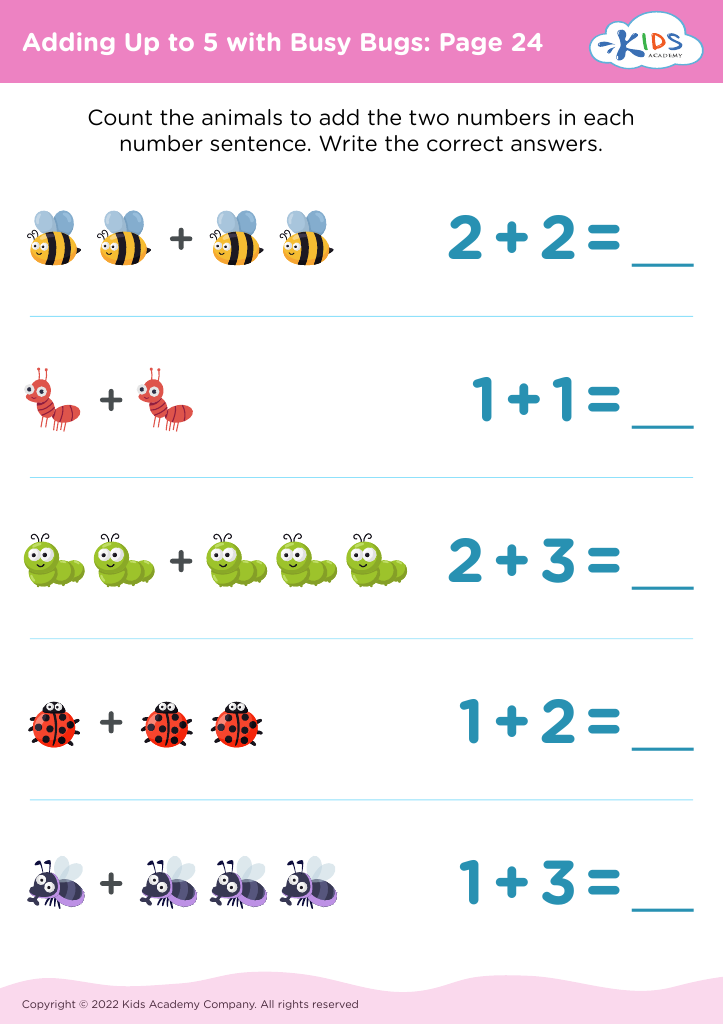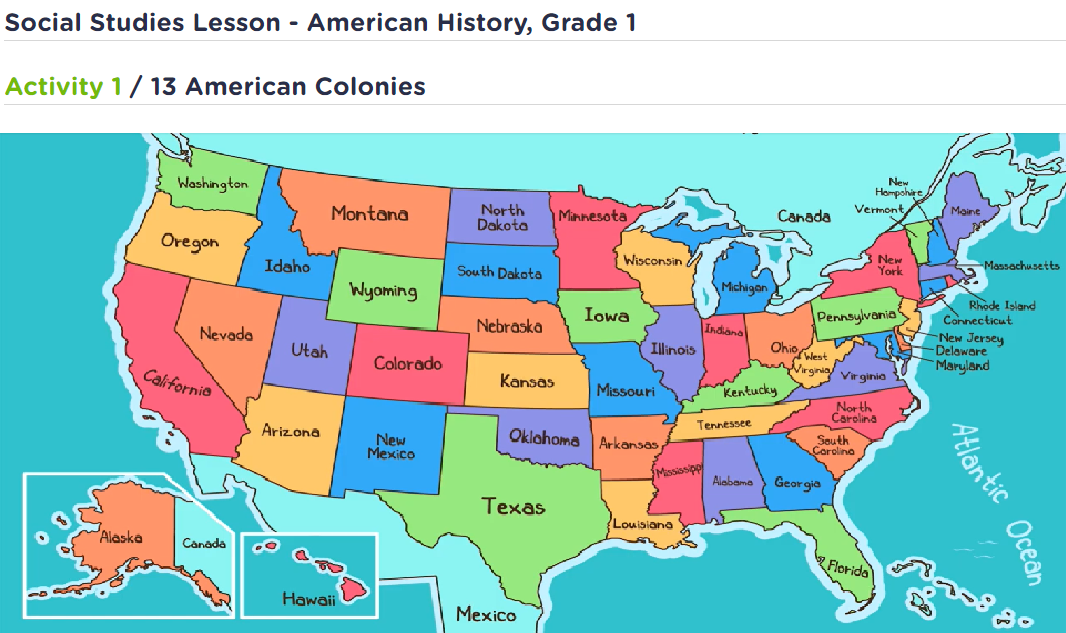Basic math comprehension Math Worksheets for Ages 3-5
4 filtered results
-
From - To
Our Basic Math Comprehension Worksheets for Ages 3-5 provide the perfect foundation for your little learner's mathematical journey. Designed to engage young minds, these resources cover essential early math skills, including counting, shape recognition, and number sequencing. Vibrant illustrations and interactive activities ensure your child remains captivated while developing critical problem-solving abilities. Ideal for preschoolers, these worksheets make learning fun and effective, setting the stage for future academic success. Trust Kid's Academy to provide high-quality education materials that turn playtime into learning time, giving your preschooler the best start in math comprehension.
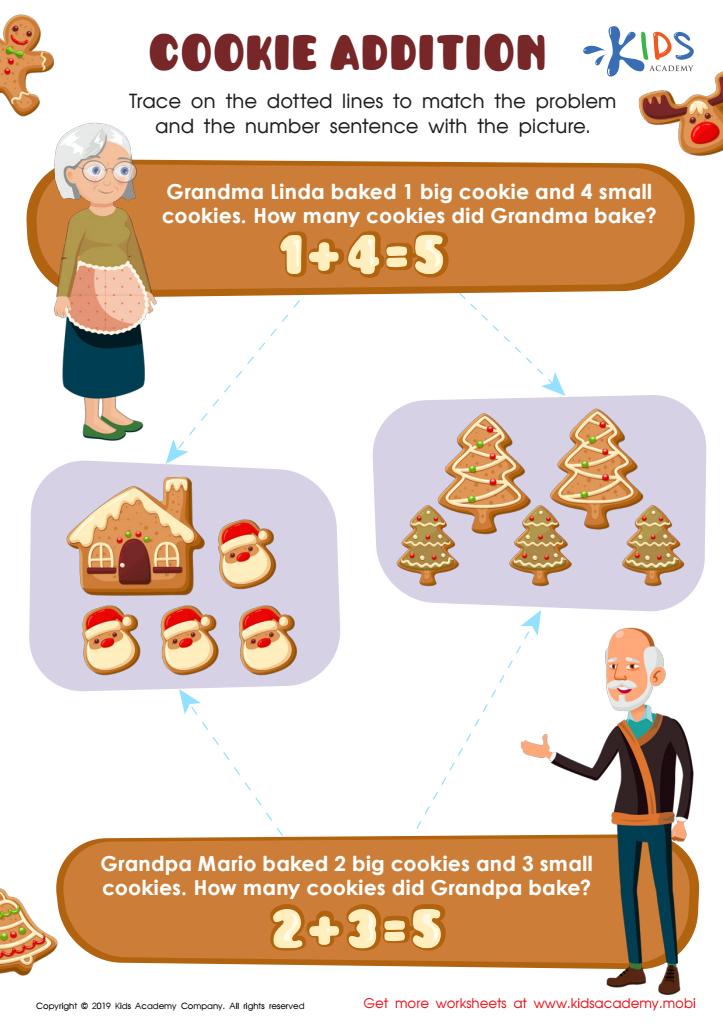

Cookie Addition Worksheet
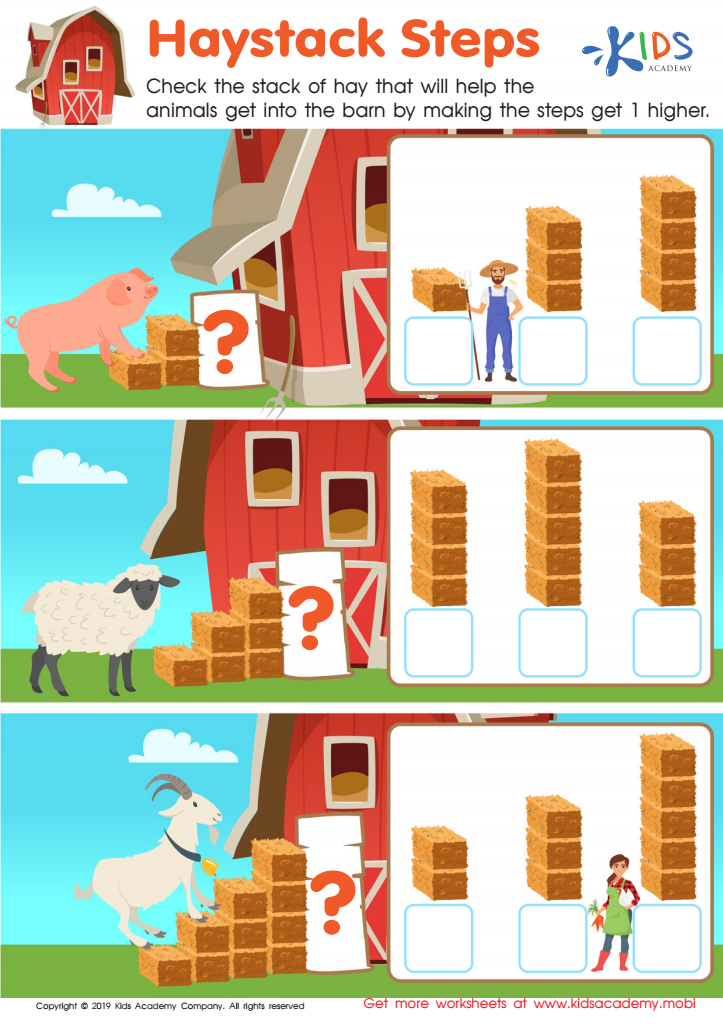

Haystack Steps Worksheet
Basic math comprehension in children ages 3-5 is foundational for their future academic success and daily problem-solving abilities. At this developmental stage, children are naturally curious, and engaging them in basic math tasks such as counting, recognizing shapes, and understanding patterns sets a strong foundation.
Early math skills foster cognitive development, critical thinking, and logical reasoning. By understanding basic concepts like numbers and spatial relations, children can make sense of the world around them. For instance, when children play with blocks or sort colored objects, they’re not just having fun; they’re learning principles of geometry, quantity, and organization.
Additionally, early math skills are closely linked with literacy. As children count stories in books or recognize numbers in poems and songs, their language skills are simultaneously enriched. This dual development opens up a holistic way of thinking that supports not just math and reading, but also later complex subjects in science and technology.
Moreover, a positive experience with early math fosters a love for learning and builds confidence. Children who grasp basic math concepts early are less likely to feel intimidated by more complex mathematics later in school. Thus, investing in early math comprehension cultivates a lifelong appreciation and proficiency in the subject, leading to broader academic and personal success.
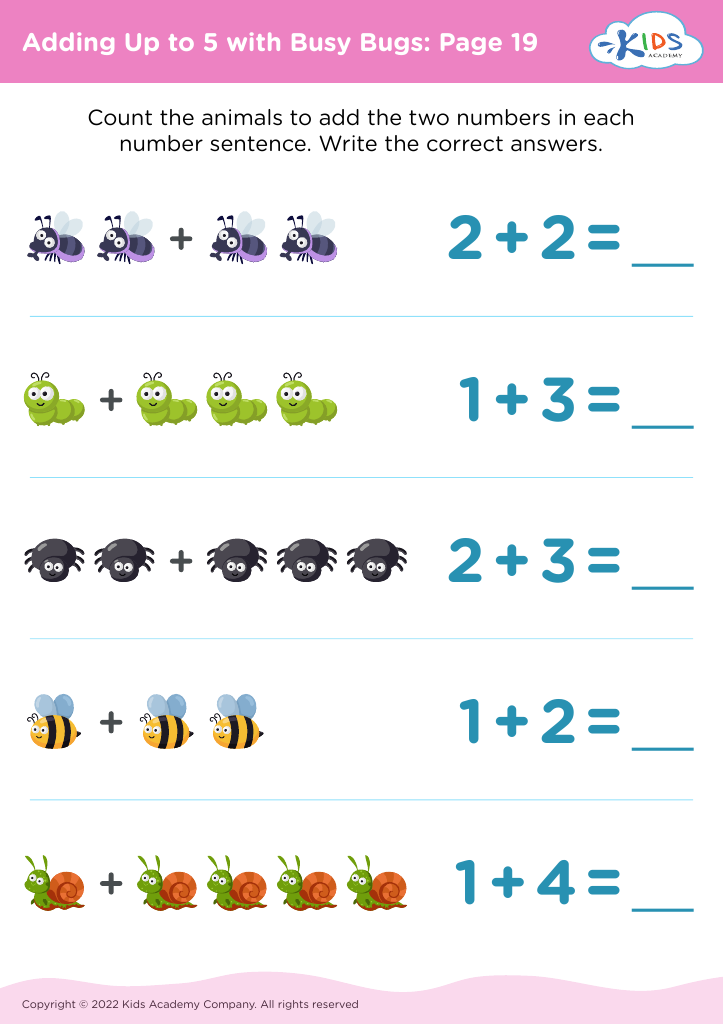
 Assign to My Students
Assign to My Students
